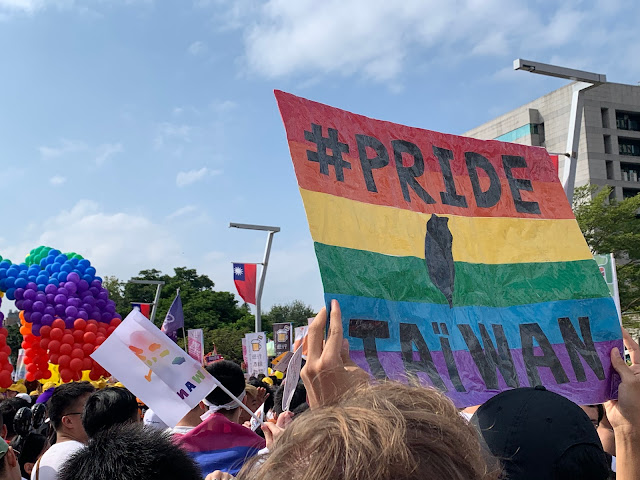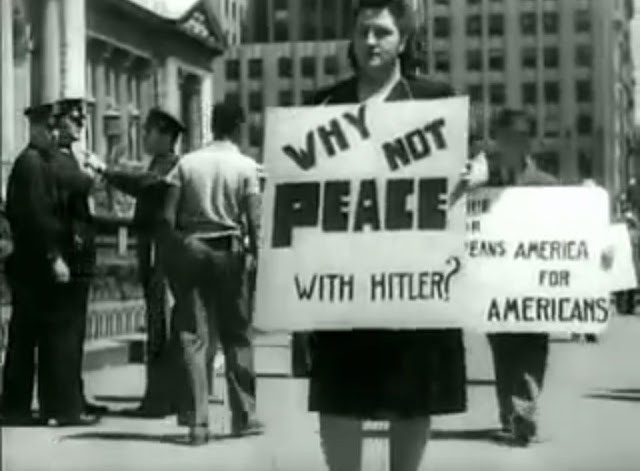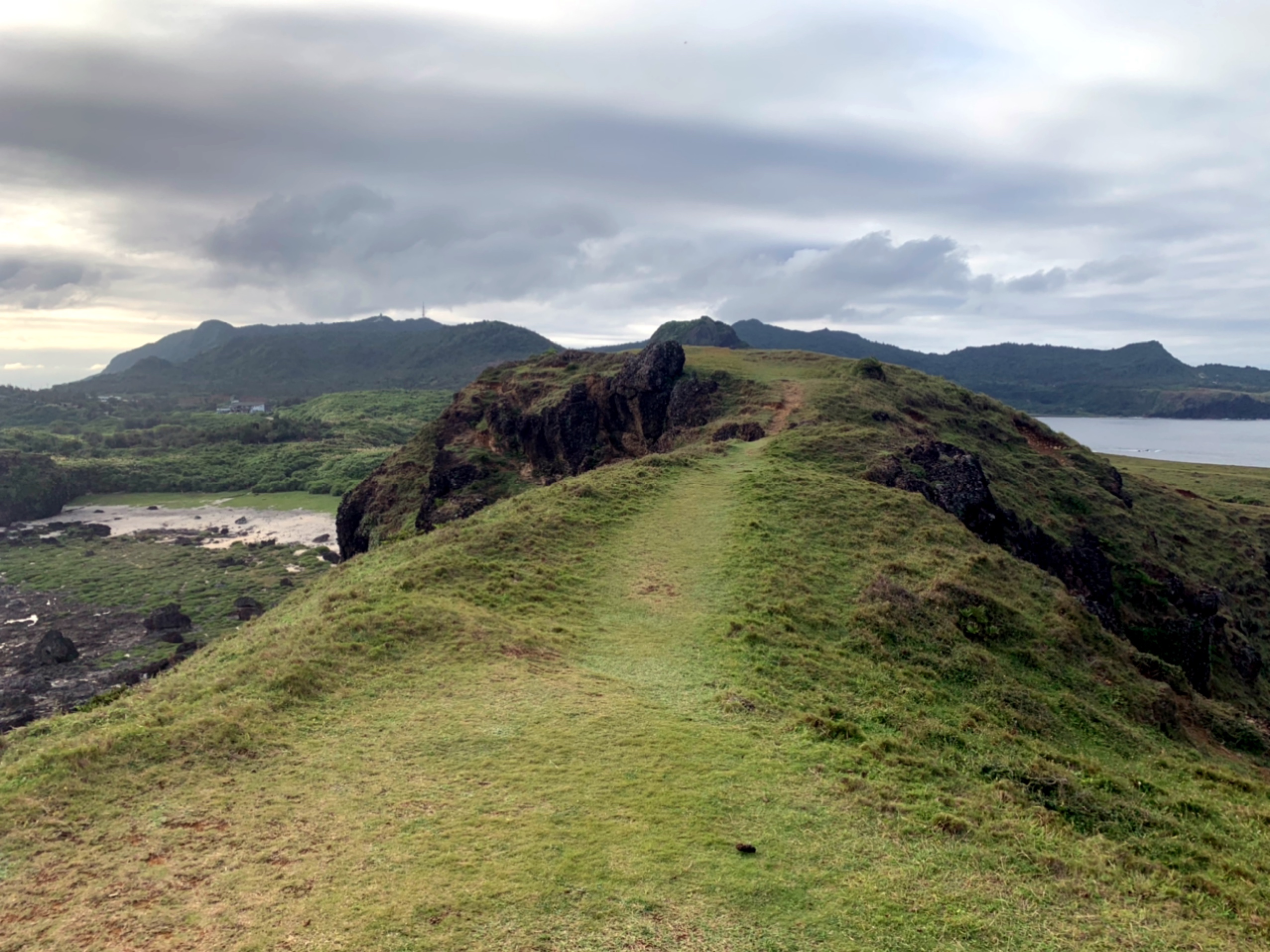Senator Marsha Blackburn is in town, and just tweeted a picture of herself at Freedom Square/Chiang Kai-shek Memorial Hall, where she rather offensively claimed to have learned about the "work" of Chiang Kai-shek at the memorial hall dedicated to "remembering" said "work."
Anyone who's read a thing about Taiwanese history understands that Chiang's "work" consisted mostly of slaughtering or imprisoning hundreds of thousands of Taiwanese and refugees from China, usually without due process. Rampant corruption and nepotism, attempts at cultural and linguistic eradication, mismanagement of resources and revenue, media and personal censorship and the endless pounding-down of "Free China" propaganda and vilification of Taiwanese identity are his legacy.
You know...work.
Enjoyed my visit to National Chiang Kai-shek Memorial Hall in Taipei that remembers the work of President Chiang Kai-shek. pic.twitter.com/73t54jFud1
— Sen. Marsha Blackburn (@MarshaBlackburn) August 27, 2022
As such, the tweet itself went beyond tone-deaf and straight to offensiveness. It's an erasure of all the harm Chiang inflicted on Taiwan, and all the Taiwanese he massacred. It absolutely merits principled criticism.
On top of this, my views on Blackburn are strongly antipathic, for reasons unrelated to Taiwan. As an American politician, her positions are the polar opposite of mine. Frankly, she horrifies me. The internalized misogyny alone must burn her already-charred soul like a mofo. If I were her constituent I would not vote for her. Marsha Blackburn is not a good person.
The tweet was crap, Chiang Kai-shek was crap, and Marsha Blackburn is crap.
To be fair, most of the responses I've seen have been either civil criticism or attempts at clarifying why the tweet is clueless and offensive. But I've also seen just enough outright attacks that I want to say something.
So, I'd like to advocate for a generous response to her Very Bad Tweet. This may be my most generous take yet, considering my seething and active revulsion towards both the senator and the former dictator. It takes a lot to overcome that. I posit that one should try.
First, chances are this stop was planned for Blackburn. I doubt she woke up and said "hey, I'd really like to visit Dead Dictator Memorial Hall today!" Someone took her there.
Did she have to write a tweet that implied he was a decent guy whose legacy is worth learning about in a positive (or even neutral) light? No, but there's a pretty fair chance that she -- or the social media manager who writes her tweets -- is honestly ignorant of this history.
I was ignorant too, at one point. Not to the same degree, however: the first thing I learned about Chiang was that this so-called "leader of Free China" was "corrupt and awful to the core", only better than Mao in that his body count is perhaps lower. (I had a particularly good Social Studies teacher when I was young). But I didn't know the extent of his atrocities until I came to Taiwan and not only started reading about its history, but met people affected by the KMT dictatorship.
This indicates a solid opportunity to educate, or offer more accurate perspectives and historical facts. If she hears about the Twitter storm at all, tweets attacking her ("you probably love the idea of mass executions!") aren't going to lead to a change in perspective. Among other possible responses, advocating for her to visit the various museums and memorials, dedicated to human rights in Taiwan might.
I know that's hard to swallow, given that this is a woman who thinks taking away the rights of other women is not only acceptable but desirable. But understanding the true horror of Chiang's reign is not quite the same as having an ongoing conflict with basic facts in one's own political milieu.
Of course, one can argue they come from the same mindset -- and honestly, they probably do. "Imprison all my perceived enemies and execute them without trial!" and "Lock Her Up! Her Emails! Punish Sluts By Banning Abortion!" attitudes are more or less the same neurons firing in different contexts.
And yet, because Taiwan is not her typical political milieu, she might be more open to suggestions that maybe she's gotten it wrong in putting a positive spin on Chiang Kai-shek's bloody legacy. Perhaps.
That's not the most important point, though. She's one senator. There are more important reasons than simply "educating Marsha Blackburn" to respond to tweets like this in a specific, goal-oriented way.
I don't mean refraining from criticism: she's earned it. I mean offering that criticism in a way that might actually be digested.
The first is that it would be very easy for foreign officials considering a visit to Taiwan to see these harsh responses and think "well maybe Taiwanese don't actually want us there", and stop visiting. The same is true for calls to criticize all visits by people one doesn't support generally, or all visits by any officials, simply because they aren't ideologically pure enough, or are too "establishment" and therefore must be tarnished or unacceptable allies in some way. To be fair, most are deeply imperfect if not outright problematic -- my point is that it doesn't matter as much as one might think.
Taiwan does need establishment support. Progress usually happens when social movements have some relationship with power. The ones that don't get ignored. The American left (I don't mean liberals, I mean the left) isn't very powerful not because they're entirely wrong, but because they not only don't have establishment support, but actively antagonize and thus neutralize potential alliances.
If Taiwan did the same thing, and rejected support based on stringent ideological purity, it would have no international support at all. Not just from the US -- there are ongoing attempts to alienate Japan, too.
Worse still, not all Taiwanese or advocates for Taiwan agree on ideology, ensuring absolute isolation. Maybe This Guy is a boomer Republican and craps all over "radical left" Nancy Pelosi's visit, and That Guy thinks Pelosi isn't leftist enough. Then That Other Guy craps on Blackburn's visit, or Pompeo's. Tammy Duckworth comes as part of a delegation and Boomer Republican craps on that too...
Soon, you have no visits at all, just a big load of crap. Maybe these critics have earned leftist (or rightist) cred for themselves, but they haven't done a single thing to actually advance support for Taiwan among people with the power to make a real difference.
Even worse, they've ignored the fact that most locals seem to want these visits: not because they think the officials in question are all great people, but because they understand the necessity of it.
I'm never going to support Marsha Blackburn. But I will support her support of Taiwan. Not personally -- I don't think I could bear to speak to her -- but because it's good for Taiwan to have bipartisan support so that no matter who is in power, Taiwan has international friends. Love it or hate it, this is what that means. It also means if you don't like Nancy Pelosi or Mike Pompeo, you still grit your teeth. Maybe you say nothing, or offer personal views only.
I too struggle with what it really means to want strong support of Taiwan internationally, and have for some time. It means swallowing a hell of a lot of squick. It means not shrieking in anger every time someone I would rather spit on than shake hands with visits Taiwan. It's absolutely brutal. I know.
But if you advocate for bipartisanism sincerely, this is what it entails. I'm sorry.
There's another reason not to go into full-on attack mode: it makes pro-Taiwan advocates sound like, well, Chinese troll "ambassadors" and other embarrassing mouthpieces. Again, I know this is hard to swallow, but what looks from our side like targeted criticism probably reads as straight-up trollish dunking to anyone who doesn't have a strong grasp of Taiwanese affairs. That's probably most people reading Blackburn's tweets. That's a fantastic way to convince hundreds of thousands of Americans that people who advocate for Taiwan are assholes and Taiwan therefore isn't worth supporting. At that point we're basically doing the work of the CCP trolls for them.
Keep in mind that not everyone reading Blackburn's Twitter is some conservative jackass; plenty of liberals hate-read her on social media! Right now they mostly seem to be asking that she just stay in Taiwan or cracking jokes about her wearing a mask in Taiwan, where it's legally mandated. Some are asking why she went at all, seemingly not realizing it's normal for officials from democratic nations to visit each other.
They aren't really engaging with why Taiwan matters. They're mostly not engaging with why Chiang was a bad dude, or Taiwan's impressive progress since his death.
Perhaps we have a chance to make a tiny dent in that bipartisan wall of ignorance. I say we take it.
Of course, by all means criticize the tweet. But criticism with an appeal to learn more is not the same as an all-out attack.
(Feel free to attack Blackburn on any of her other horrific views, though. Being in favor of forced birth and against human rights for women is a good place to start.)
Finally, I'd like to offer an idea that even I don't particularly care for, but is worth pointing out. For years, the USA kind of quietly supported the KMT -- probably seeing them as the best bet in terms of maintaining "peace" across the Taiwan Strait. That peace was always a false one, but I suppose it looked good at the time to those who didn't realize that China was using rapprochement with the KMT to secure a path to annexation, a path that inevitably leads to war.
Only very recently have US administrations seemed to warm up a bit to the DPP, in part because the KMT simply isn't that popular in Taiwan and democratic choice should be respected, but also likely in part because in the 2020s, the US has finally figured out that appeasing China does not lead to peace; deterrence is a far more likely (though not guaranteed) prospect.
And yet, I find it so weird that this very small, very recent pivot has got so much of the Taiwan Internet Commentariat obsessed with the (false) idea that the US is using Taiwan to anger China, that the US is going back on its promise not to support "Taiwan independence" (very wrong, for many reasons), or that the DPP are the real 'authoritarians' and 'imperialists' because they have 'imperialist US' backing. Or that the US 'created' the Taiwanese independence movement (so very, very wrong).
Tone-deaf tweets in which senators visit outdated monuments to dictators who vehemently opposed Taiwanese independence show, I guess, that these visits are not really about a sea change in US policy on Taiwan, or any sort of agenda the US has toward that end. It certainly shows that there's no partisan leaning toward the DPP in Taiwan, either. Official visitors can't possibly be in the pocket of some 'Green Terror' stricken DPP (lol) if they're visiting Chiang Kai-shek Memorial Hall and cluelessly tweeting about it.
With all that in mind, feel free to criticize the Marsha Blackburn tweet. It's so clueless that it's absolutely earned that. But be smart about it: do it in a way that might actually get through to her team or the readers of these tweets.
I suggest you do this even if you don't like Marsha Blackburn -- and I most certainly do not.















